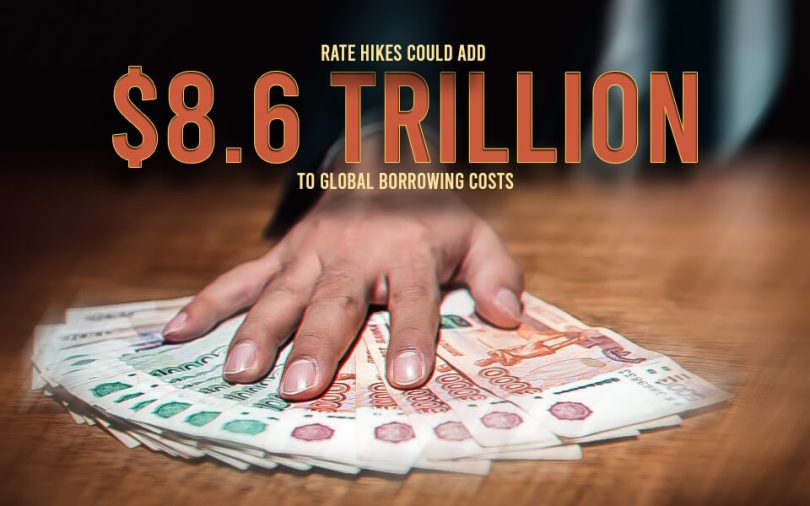S&P Global estimated on Friday that Central bank rate climbs could land global borrowers $8.6 trillion in extra debt servicing costs in upcoming years, warning of slow economic activity.
Major central banks delivered a record 2,700 basis points of price hikes in 2022 to rule out high inflation, while crises have been growing about higher borrowing costs flaring a global recession.
S&P Global is a financial intelligence company that comprises a debt ratings service that stated, “Higher interest expenses are already straining less-creditworthy governments and corporates, and lower-income households” in a report.
According to S&P Global, businesses’ required returns on new projects are rising in unison with debt costs, a trend that will “dampen future business activity volumes.”
S&P Global added, “Rising interest rates and slowing economies are making the debt burden heavier,” in the news report launched earlier, before the World Economic Forum scheduled Davos, Switzerland, this week.
“To mitigate the risk of a financial crisis, trade-offs between spending and saving may be needed.”
S&P Global assessed an $8.6 trillion added interest bill by charging a three percentage point rate hike to $300 trillion global debt. The report said that around 65% of the additional debt service cost would be settled in loans and fixed-rate bonds as they were refinanced “over time.”
It also forecasted that the global debt-to-GDP ratio – an indicator of leverage risk in the financial system – could rise in a worst-case scenario up to 391% by 2030, from 349% in June 2022.
S&P Global joins a chorus of policymakers and multilateral institutions in warning about the influence of higher debt servicing prices on fragile economies, businesses, and struggling households.
World Bank President David Malpass stated at a Reuters conference last month that the world’s poorest nations now obligated $62 billion in annual debt service costs to official creditors, a rise of 35% over the past year, sparking problems about a disorganized default trend.
A group of 55 economies – The Vulnerable Group of 20 (V20), that revealed the fallout from climate change in September, forecasted their debt interest bill would grow to a point where they would labor to safeguard their populations from natural disasters.
- Published By Team Australia News








